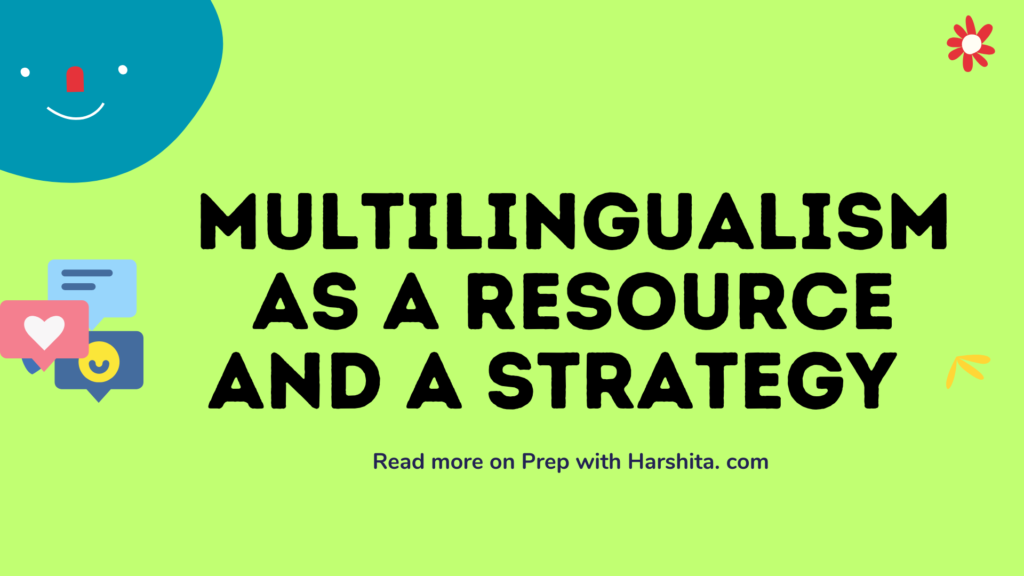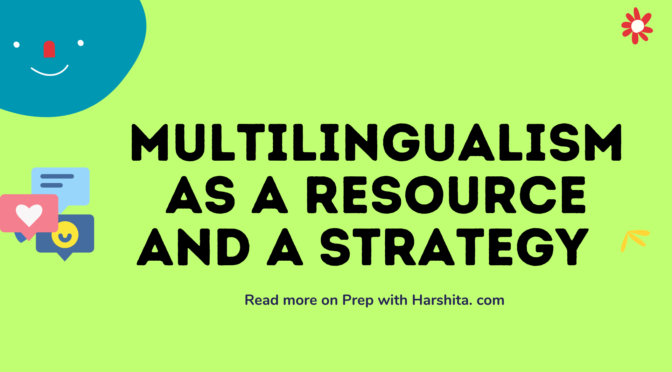Multilingualism refers to the ability to speak and understand multiple languages. It is considered a valuable resource and strategy with various benefits at individual, societal, and global levels.
Here is a detailed explanation of how multilingualism serves as a resource and strategy:
- Cognitive Benefits: Multilingualism has been linked to cognitive advantages. Research suggests that speaking multiple languages can enhance cognitive functions such as problem-solving, memory, attention, and multitasking abilities. It can also delay the onset of cognitive decline in older adults.
- Improved Communication: Multilingual individuals have the ability to communicate with a broader range of people from different linguistic backgrounds. This facilitates effective cross-cultural communication, fosters understanding, and helps bridge cultural gaps. It can lead to enhanced interpersonal relationships, cultural exchange, and collaboration.
- Academic and Professional Opportunities: Multilingual individuals have an advantage in accessing academic and professional opportunities. They can participate in international programs, pursue education or job prospects in different countries, and engage in global business and trade. Multilingualism is increasingly valued by employers who seek individuals with language skills to communicate with diverse stakeholders.
- Cultural Understanding and Empathy: Learning and speaking different languages exposes individuals to diverse cultures, traditions, and perspectives. It promotes cultural understanding, empathy, and appreciation for different ways of life. Multilingualism encourages individuals to step out of their own cultural bubble, fostering tolerance and respect for cultural differences.
- Enhanced Problem-Solving and Creativity: Multilingual individuals often exhibit enhanced problem-solving skills and creativity. Multilingualism encourages flexible thinking, adaptability, and the ability to consider multiple perspectives. It enables individuals to draw on different linguistic and cultural resources, leading to innovative and creative approaches to challenges.
- Preservation of Cultural Heritage: Multilingualism plays a crucial role in preserving cultural heritage. By speaking and passing on ancestral languages, individuals contribute to the preservation of cultural identity, traditions, and oral histories. Multilingualism helps maintain linguistic diversity, protecting languages from extinction.
- Improved Language Skills and Literacy: Multilingual individuals tend to have stronger language skills overall. Learning additional languages can deepen understanding of grammar, vocabulary, and language structures. Multilingualism can also improve literacy skills, as individuals develop a greater awareness of language nuances and a broader vocabulary.
- Global Citizenship and Intercultural Competence: Multilingualism cultivates global citizenship and intercultural competence. It enables individuals to engage with diverse communities, understand global issues, and contribute to a more interconnected world. Multilingual individuals can act as cultural bridges, fostering peace, diplomacy, and understanding.
To harness the benefits of multilingualism, it is important to promote language learning opportunities in educational settings, support language maintenance in communities, and foster a positive attitude towards linguistic diversity. Embracing multilingualism as a resource and strategy contributes to personal development, cultural enrichment, and global collaboration.

Also Visit : Prep with Harshita


Thanks for sharing. I read many of your blog posts, cool, your blog is very good.
708516 687594Pretty part of content. I just stumbled upon your weblog and in accession capital to assert that I get really loved account your weblog posts. Any way Ill be subscribing on your feeds or even I success you access constantly quick. 390272